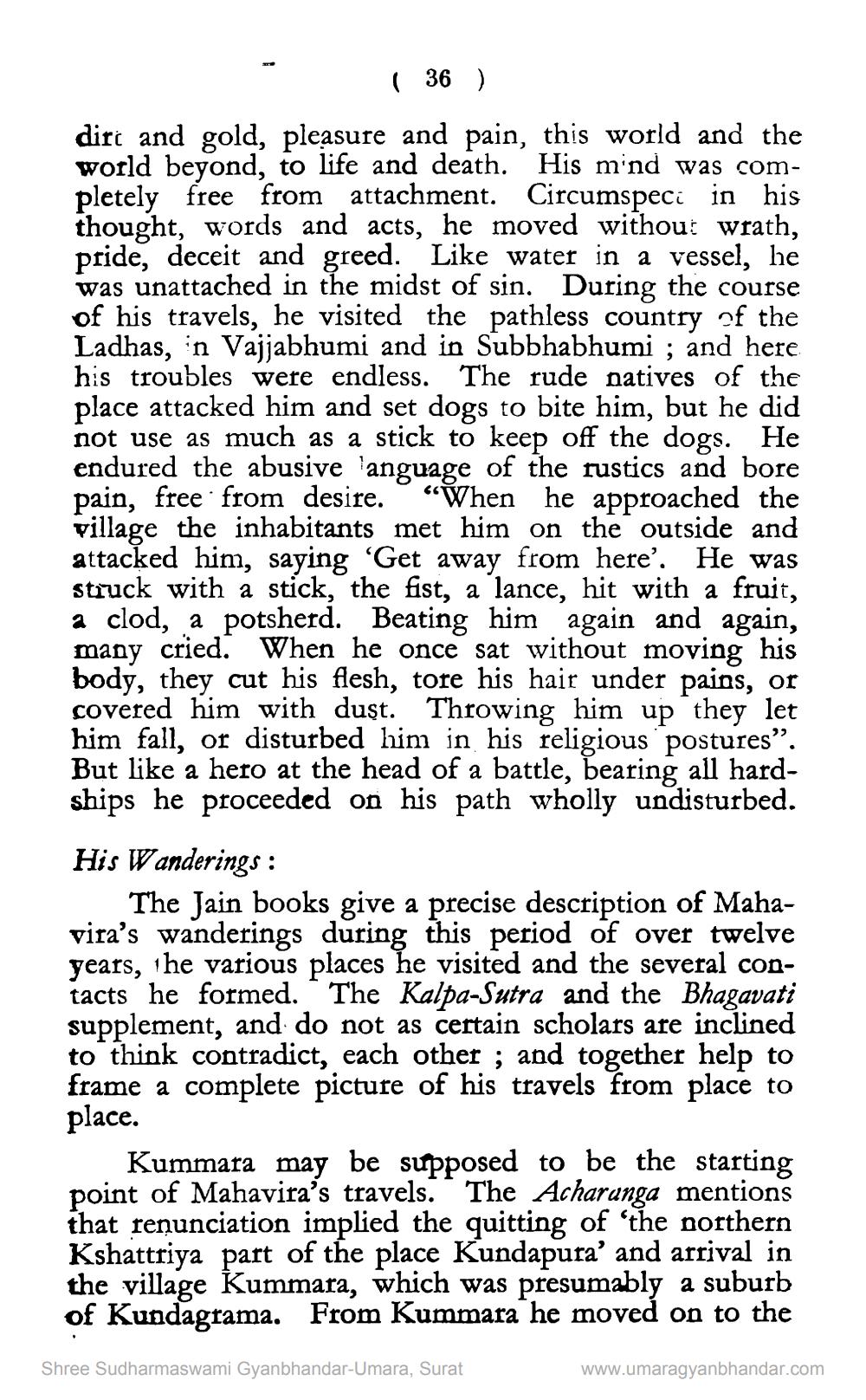________________
(
36
)
diri and gold, pleasure and pain, this world and the world beyond, to life and death. His mind was completely free from attachment. Circumspeci in his thought, words and acts, he moved without wrath, pride, deceit and greed. Like water in a vessel, he was unattached in the midst of sin. During the course of his travels, he visited the pathless country of the Ladhas, in Vajjabhumi and in Subbhabhumi ; and here his troubles were endless. The rude natives of the place attacked him and set dogs to bite him, but he did not use as much as a stick to keep off the dogs. He endured the abusive language of the rustics and bore pain, free from desire. “When he approached the village the inhabitants met him on the outside and attacked him, saying 'Get away from here'. He was struck with a stick, the fist, a lance, hit with a fruit, a clod, a potsherd. Beating him again and again, many cried. When he once sat without moving his body, they cut his flesh, tore his hair under pains, or covered him with dust. Throwing him up they let him fall, or disturbed him in his religious postures”. But like a hero at the head of a battle, bearing all hardships he proceeded on his path wholly undisturbed.
His Wanderings :
The Jain books give a precise description of Mahavira's wanderings during this period of over twelve years, the various places he visited and the several contacts he formed. The Kalpa-Sutra and the Bhagavati supplement, and do not as certain scholars are inclined to think contradict, each other; and together help to frame a complete picture of his travels from place to place.
Kummara may be supposed to be the starting point of Mahavira's travels. The Acharanga mentions that renunciation implied the quitting of the northern Kshattriya part of the place Kundapura' and arrival in the village Kummara, which was presumably a suburb of Kundagrama. From Kummara he moved on to the
Shree Sudharmaswami Gyanbhandar-Umara, Surat
www.umaragyanbhandar.com




